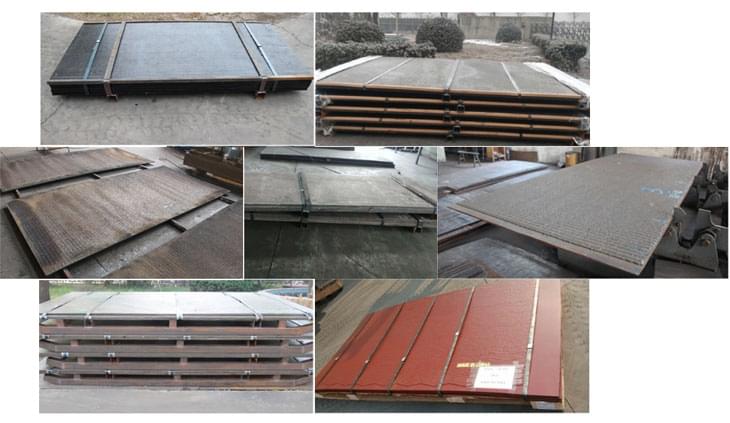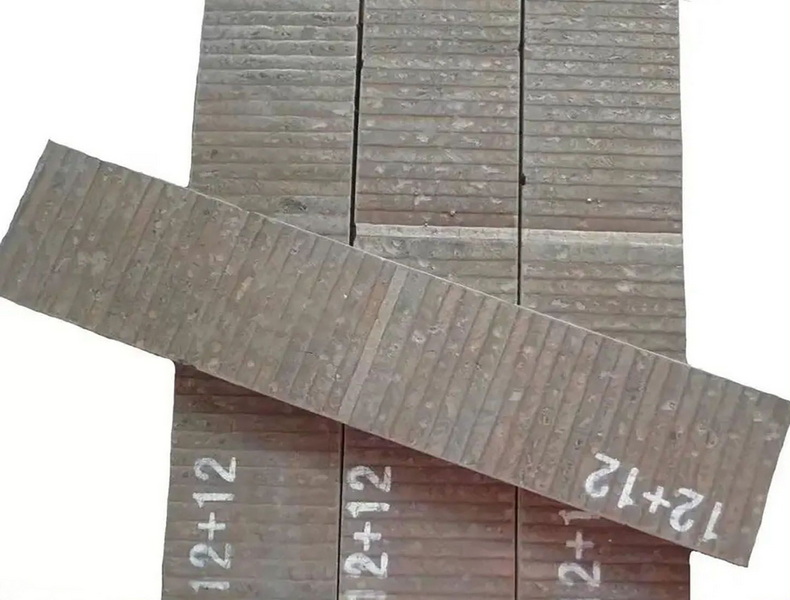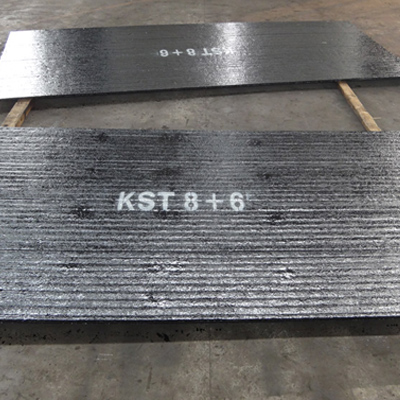Content Menu
● Understanding Chrome Carbide Wear Resistant Plates
>> Key Properties of Chrome Carbide Wear Resistant Plates
● Industries That Benefit from Chrome Carbide Wear Resistant Plates
>> Mining Industry
>> Construction Industry
>> Agriculture Industry
>> Steel and Metal Processing
>> Power Generation
>> Recycling Industry
>> Cement Industry
>> Oil and Gas Industry
● Advantages of Using Chrome Carbide Wear Resistant Plates
>> Cost Efficiency
>> Enhanced Safety
>> Environmental Benefits
>> Versatility
● Conclusion
● Frequently Asked Questions
>> 1. What is the primary benefit of using chrome carbide wear-resistant plates?
>> 2. In which industries are chrome carbide wear-resistant plates most commonly used?
>> 3. How do chrome carbide wear-resistant plates compare to other materials?
>> 4. Can chrome carbide wear-resistant plates be customized?
>> 5. What maintenance is required for equipment using chrome carbide wear-resistant plates?
Understanding Chrome Carbide Wear Resistant Plates
Chrome carbide wear-resistant plates, particularly the 450 AR600 variant, are increasingly recognized for their exceptional durability and performance in various industrial applications. These plates are engineered to withstand extreme wear and tear, making them ideal for industries that face harsh operating conditions. In this article, we will explore the industries that can benefit the most from these plates, their unique properties, and how they can enhance operational efficiency and longevity in demanding environments.
Chrome carbide wear-resistant plates are composite materials that combine a steel substrate with a layer of chromium carbide. This combination results in a product that offers superior hardness, abrasion resistance, and impact resistance. The "450" in the name refers to the hardness of the plate, measured on the Brinell scale, while "AR600" indicates its classification as an abrasion-resistant material.
Key Properties of Chrome Carbide Wear Resistant Plates
1. High Hardness: With a hardness rating of 450 BHN, these plates can withstand significant wear from abrasive materials, making them suitable for applications in mining, construction, and manufacturing.
2. Impact Resistance: The tough nature of chrome carbide allows these plates to absorb impacts without cracking or breaking, which is crucial in environments where heavy machinery is used.
3. Corrosion Resistance: The chromium content provides excellent resistance to corrosion, extending the lifespan of the plates in environments where moisture and chemicals are present.
4. Customizability: These plates can be manufactured in various sizes and thicknesses, allowing for tailored solutions to meet specific industry needs.

Industries That Benefit from Chrome Carbide Wear Resistant Plates
Mining Industry
The mining industry is one of the primary beneficiaries of chrome carbide wear-resistant plates. Mining operations involve the extraction of minerals and ores, which can be highly abrasive. Equipment such as crushers, conveyors, and chutes are subject to extreme wear from the materials they handle. By incorporating chrome carbide plates into these components, mining companies can significantly reduce maintenance costs and downtime.
Construction Industry
In the construction sector, heavy machinery and equipment are constantly exposed to abrasive materials like concrete, gravel, and soil. Chrome carbide wear-resistant plates can be used in bulldozers, excavators, and other construction equipment to enhance their durability. This not only prolongs the life of the machinery but also ensures that projects can be completed on time without unexpected equipment failures.
Agriculture Industry
The agriculture industry also benefits from the use of chrome carbide wear-resistant plates. Equipment such as plows, harrows, and seeders often encounter abrasive soil and debris. By using these plates, farmers can reduce wear on their equipment, leading to lower replacement costs and increased efficiency during planting and harvesting seasons.
Steel and Metal Processing
In steel and metal processing, the handling of raw materials and finished products can lead to significant wear on equipment. Chrome carbide wear-resistant plates are ideal for use in areas such as scrap handling, where metal shavings and debris can cause damage. These plates help maintain the integrity of processing equipment, ensuring smooth operations.
Power Generation
The power generation industry, particularly in coal-fired power plants, faces challenges from abrasive materials such as coal and ash. Chrome carbide wear-resistant plates can be used in chutes, hoppers, and other components that handle these materials. Their durability helps prevent costly repairs and downtime, ensuring a more reliable power generation process.
Recycling Industry
The recycling industry deals with a variety of materials, including metals, plastics, and paper, all of which can be abrasive. Chrome carbide wear-resistant plates are used in shredders, conveyors, and other equipment to enhance their lifespan and performance. This is particularly important in maintaining efficiency and reducing operational costs in recycling facilities.
Cement Industry
In the cement industry, the handling of raw materials such as limestone and clay can lead to significant wear on equipment. Chrome carbide wear-resistant plates can be utilized in crushers, mixers, and other machinery to improve durability and reduce maintenance needs. This results in a more efficient production process and lower operational costs.
Oil and Gas Industry
The oil and gas industry often involves the handling of abrasive materials during drilling and extraction processes. Chrome carbide wear-resistant plates can be used in drilling rigs, pipelines, and other equipment to enhance their resistance to wear and corrosion. This is crucial for maintaining the integrity of equipment in harsh environments.

Advantages of Using Chrome Carbide Wear Resistant Plates
Cost Efficiency
One of the most significant advantages of using chrome carbide wear-resistant plates is their cost efficiency. While the initial investment may be higher than traditional materials, the long-term savings from reduced maintenance and replacement costs can be substantial. Companies can avoid frequent downtime and the associated costs of repairs, leading to increased productivity.
Enhanced Safety
In industries where heavy machinery is used, safety is paramount. The durability of chrome carbide wear-resistant plates contributes to safer working environments. By minimizing equipment failures and breakdowns, the risk of accidents is reduced, protecting workers and ensuring compliance with safety regulations.
Environmental Benefits
Using durable materials like chrome carbide wear-resistant plates can also have positive environmental impacts. By extending the lifespan of equipment, companies can reduce waste generated from discarded machinery and parts. Additionally, more efficient operations can lead to lower energy consumption and reduced emissions.
Versatility
Chrome carbide wear-resistant plates are versatile and can be used in a wide range of applications across different industries. Their ability to withstand extreme conditions makes them suitable for various environments, from high-temperature settings in power plants to the abrasive conditions found in mining operations.
Conclusion
Chrome carbide wear-resistant 450 AR600 plates offer significant advantages across various industries, including mining, construction, agriculture, steel processing, power generation, recycling, cement, and oil and gas. Their unique properties, such as high hardness, impact resistance, and corrosion resistance, make them an ideal choice for applications that require durability and longevity.
By investing in chrome carbide wear-resistant plates, companies can reduce maintenance costs, minimize downtime, and enhance the overall efficiency of their operations. As industries continue to evolve and face new challenges, the demand for high-performance materials like chrome carbide will only increase.

Frequently Asked Questions
1. What is the primary benefit of using chrome carbide wear-resistant plates?
The primary benefit is their exceptional durability and resistance to wear, which helps reduce maintenance costs and downtime in various industrial applications.
2. In which industries are chrome carbide wear-resistant plates most commonly used?
They are commonly used in mining, construction, agriculture, steel processing, power generation, recycling, cement, and oil and gas industries.
3. How do chrome carbide wear-resistant plates compare to other materials?
Chrome carbide plates offer superior hardness and abrasion resistance compared to many other materials, making them more effective in high-wear applications.
4. Can chrome carbide wear-resistant plates be customized?
Yes, these plates can be manufactured in various sizes and thicknesses to meet specific industry needs.
5. What maintenance is required for equipment using chrome carbide wear-resistant plates?
Regular inspections and cleaning are recommended to ensure optimal performance, but overall maintenance is significantly reduced due to the durability of the plates.
















